Trans Awareness Week: 6 people share struggles, successes and hopes for the future
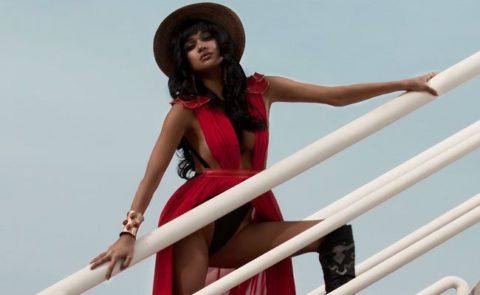
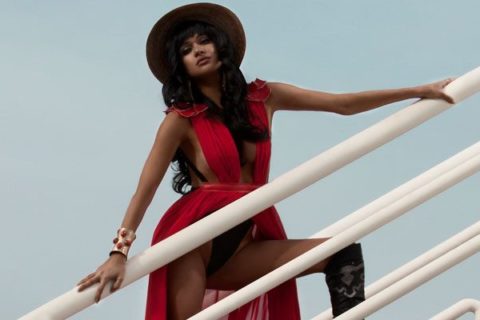
The Berlin wall of gender is falling around us, piece by piece, and the world is taking notice. For decades, women’s and LGBTQ rights have been outside our everyday discussion and sidelined to small, isolated circles and special interest groups. The evolution of our whole approach to gender—in the media, society or fashion—is happening right now because brave individuals have chosen to speak out in a way that humanizes their plight.
History tells us that during the early days of the LGBTQ civil rights movement—specifically during 1969’s Stonewall riot in New York City—it was gender noncomformists and transgender people who were at the forefront of championing the change we see now. Today, many trans people continue to lead us into this new evolution and we can learn from many of these everyday activists as they share their true selves and refuse to be sequestered by oppression.
To celebrate Trans Awareness Week and to honour today, the Transgender Day of Remembrance, we’ve spoken to six extraordinary people from the transgender community.
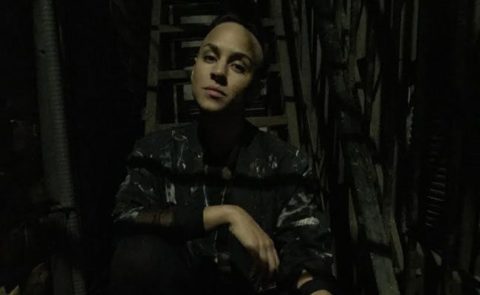
Dancer, choreographer and wellness consultant
Role model
“Martin Luther King Jr., Grace Lee Boggs, Judith Snow. Each stood on the periphery of society and dedicated their lives to an improved quality of life for people whose voices don’t get heard or are being silenced. They altered our perceptions of what’s possible for human beings and what contribution and transformation can look like.”
Biggest support system
“Without a doubt, it’s community. Having people to call on, reflect with, coach me, question me, validate, and share space, time and love with has made the greatest difference. As well, cultivating inner strength, whether sitting in meditation or going for a run, is also a huge support. You have to cultivate space for your solo self. The paradox is that you need people to cultivate that personal strength as well. Neither exists in a bubble.”
The most challenging thing about being transgender
“Invisibility and assumption. People assume the gender identity of others based on presentation, and this isn’t wrong—it’s just an old idea. I imagine a future where saying ‘What’s your pronoun?’ is as common as asking ‘What’s your name?”’
On whether the “T” (for Transgender) from the ever-growing GBLTQ acronym should be removed
“I don’t care to agree or disagree. I would, however, like to point to the deep-seated roots of colonization that has us spending time and energy considering such matters and disagreeing within our community instead of dealing with larger scale concerns like health safety and living conditions for oppressed communities. Over-identification with any label is not a healthy process, so keep it all or drop it all, just do the work that needs doing for people. Folks need to realize, the design of colonization…keeps oppressed groups arguing amongst themselves and they will never rise up. Any act that pits oppressed individuals/groups against each other is an act of colonization and needs to be addressed as such.”
The biggest emotional change LeeLee has experienced
“By far, I am more at peace with myself.”
On fashion’s relationship with the trans community
“Inherently, fashion’s job is to take what’s different and weird from the outside and bring it in, finding ways to make it cool and mainstream. If the fashion industry’s embracing of transgender people can somehow alleviate prejudice, discrimination, health, living and safety concerns that transgender communities face every day from existing—great. Mindfulness is required, however, in not trivializing transgender issues and/or experiences.”
The most annoying question you can ask a trans person
“Questions about my body, how I have sex, who I have sex with, and if my name is my ‘real’ name.”
Proudest moment
“When my mother said, ‘Why do I need to know why a trans person is trans? I don’t. I never ask, Why is a flower a flower? I just know it’s a flower and it’s beautiful and that’s enough.’”

Laverne Cox
Actress, activist, producer
Role model
Sophia, the character she portrays in the Emmy-award-winning Netflix series Orange Is The New Black. “She’s been profoundly written in a multi-dimensional way. Having an actual trans person playing her was important,” Cox says. “Her relationship to her body ends up becoming an education to many of the women in the prison. “
Biggest support system
Cox feels embraced, inspired and encouraged by the trans people from many generations. Last year she produced a series called The T Word, which followed the lives of various transgender youth, ranging from 12 to 24 years old. Her next big producing project, Free CeCe, is a documentary about 27-year-old CeCe MacDonald, a trans woman who was forced to serve time in an all-male prison. Cox narrates the film.
The most challenging thing about being transgender today
“In my lectures, I talk about my suicide attempt during sixth grade, and after [one] lecture was over, someone came up to me and she shared her very same experience. When we share the truth, it makes people feel that they are not alone.”
On whether the film industry’s recent admiration for the trans community is legit
“Trans people have been used as the new, cool thing—just as [being] black or gay. When we sensationalize or objectify, we all lose. The idea of trans people trending and how we may be ‘out of fashion’ is appalling. We’ve had many transploitation films—let’s keep it real…but my job is to love people even when they don’t love me. I’m not interested in being in a feud with somebody.”
On the media’s perception of trans people
“We’ve had years of being at the end of the jokes and getting our bodies sensationalized, but that moment in popular culture was important because of the lesson learned. I think we have learned to acknowledge our history and speak up much more. TV is on its way. It’s a slow process. We don’t have one main character played by a trans actor on TV yet—I know we are going to have more coming soon.”
On her hope for the future
“We need scripts to focus on narratives that go beyond transition and surgery and our bodies. I think it’s powerful for trans people and non-trans people to see trans actors get jobs. For diversity’s sake, I’d love to see more trans people on the silver screen.”

Danielle Loncar
Goldsmith and radio personality
On telling people she is trans
“Unless a romantic interest was involved, I never saw the point in announcing it to anyone. I always let people draw their own conclusions.”
Biggest support system
“My friends and family are my rock. My best girlfriend Zee has stuck by me through thick and thin…for 33 years.”
The most challenging thing about being transgender today
“There is still a long way to go to bridge the gap between gender and identity. Even though trans people have been represented favourably in Hollywood in the past year…there is still much discrimination and contempt directed at trans folk. I look forward to the day when the word ‘transgender’ doesn’t raise an eyebrow.”
On whether or not the “T” (for Transgender) should be removed from the ever-growing GBLTQ acronym
“I strongly disagree! Many trans men and women have in the past identified as gay or lesbian…so it seems ridiculous to me to splinter the LGBTQ umbrella. This is just another example of people getting hung up on labels!”
On whether the fashion industry’s admiration for the trans community is legit
“Absolutely! It’s bringing awareness to the mainstream, which is always a good thing. Exquisite beauties like Ines Rau, Lea T, Geena Rocero and Aydian Dowling are certainly welcome role models and do us proud.”
The most annoying question you can ask a trans person
“People wanting to know if I still have boy parts down below.”
Proudest moment
“Too many to mention! Graduating from college and starting my own business are up there, though.”
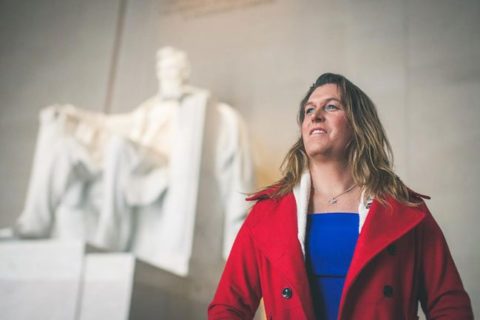
Former U.S. Navy Seal. Star of the CNN documentary Lady Valor
Age Kristin began transitioning
Forty-seven. She came out as a trans woman during a CNN interview with Anderson Cooper in 2013. Beck went on to publish two memoirs (Warrior Princess: A U.S. Navy SEAL’s Journey to Coming out Transgender and Lady Valor). She became the subject of a CNN documentary (also called Lady Valor) in 2014.
Role model
“Bruce Jenner was my hero in the ’70s. I think I still have one of his Wheaties boxes in my parents’ old house,” she told People. “When I see Caitlyn Jenner, I’m rooting for her. I love the fact that there’s all this publicity, and it’s making people ask a lot of questions. But I want people to ask the right questions.”
Biggest support system
“Finding a community was very tough for me…sometimes tougher than being a soldier in combat. The first time I entered a gay bar, I had the two snaps and [comments like] ‘What’s wrong with your makeup” or “Where’d you dress? In a dark closet?’ I had to leave. So many trans women are being ridiculed and kicked out [of] the only community that could be helpful. The gay community is not welcoming to most people who are transgender and it’s a shame. I think we all need to be helpful and not hurtful.”
The most challenging thing about being transgender today
“The toughest thing for me to do was come out and work with the government—they are very uptight when it comes to image. They always want a conservative, hardcore face. When I walked into the Pentagon in a suit and tie one day—looking very Navy Seal—and then walked in the very next day in makeup and with a dress on, it was very tough. You know, there are people that still hate me. I get death threats…but I need to take the positive role models and try to emulate that.”
On whether the film industry’s recent admiration for the trans community is legit
“Sometimes [when] you see gender non-conforming people in films, you get characters like the Silence of The Lambs‘ [villain] Buffalo Bill. Most recently I saw so much stereotyping going on with Dallas Buyers Club. Every time you see a gender non-conforming character in Hollywood films, they are relegated to being a street walker or deep into drugs, and they always have a drag queen-y look, with tons of makeup and a lot of flamboyance. A lot of the transgender people I know are not like that. They have a 9-to-5 job and dress like regular women.”
The most annoying question you can ask a trans person
“I just wish people would realize that this isn’t Halloween or some sort of fetish or see trans people as entertainment. This is us—bearing our truth and our soul.”
Proud moment
“Making Lady Valor. I think that it is projects like these that might catapult someone who is transgender to that next Oscar win. We have to start somewhere.”
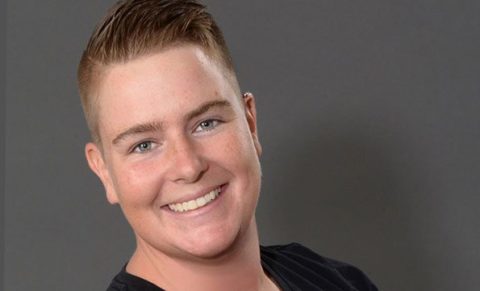
Event coordinator and marketing consultant
Role model
David Bowie. “He’s a style icon, an incredible artist and a musician. Also—and most importantly—I admire all people who give zero fucks about how others perceive their gender presentation.”
Biggest support system
“My chosen family and my Dad. He’s the best!”
The most challenging thing about being transgender today
“Avoiding the pressure to become a typical man or woman. All Trans people are different and so is the way we choose to transition and live in our bodies.”
On whether or not the “T” (for Transgender) should be removed from the ever-growing GBLTQ acronym
“Removing the ‘T’ would not be OK, in my opinion. The ‘T’ has been a huge part of the ‘movement’ and has been since the beginning at the stonewall riots. It most certainly has a place within the LGB community.”
On fashion’s relationship with the trans community
“Fashion can be an important part of the way people express themselves. My concerns around the fashion industry are not trans-specific; they’re gender specific. I worry about stereotypical feminine beauty or masculine traits…and how they are sometimes presented as the norm.”
The most annoying question you can ask a trans person
“What was your name before you transitioned? For me, the answer is always the same: ‘None of your business.’”
Proudest moment
“Having the opportunity to have owned [Toronto-based bar] The Henhouse and to have created a queer-positive open safe inclusive space for the community to come together, share and get wild and crazy.”

Nomi Ruiz
Artist, DJ, model and vocalist for bands such as Hercules and Love Affair and Jessica 6
Role model
“Mary J. Blige was at the forefront of the mixing of R&B, soul and hip-hop. It inspired my R&B and made me want my production to be tough and a little preachy…I’m into the way she speaks about relationships, there’s something somber—even in her sweet songs. Sade is also someone I look up to—she always holds a dreamy distance between herself and the lover she is singing to.”
Life imitating art
“I wrote a song about my challenges in a song called ‘The Light.’ I was really depressed, and it’s about how I was thinking about suicide. I wanted to give up last year. I was in a dark place. I was feeling that even with all the work that I’ve done, nobody was letting me in or respecting me as they would another artist who doesn’t have a trans history. There were a lot of trans-phobic things in the media and even as a blessed person, I struggled with the fact that trans artists are not always allowed to be on the same stages. We should all be allowed into the same forum [so we can] reach all people.”
Biggest support system
“The fashion and gay community. They’ve always been there for me and they are always really excited about what’s next in my career. They push me through. Nicola Formichetti, Dior, Mugler have been so great.”
The most challenging thing about being a transgender artist
“Finding love. There are so many men who hide in the shadows and lead double lives. There is a stigma for many men—their career tells them that they have to live in white-picket houses and put up this image. My song [with Jessica 6] called ‘Shadow Dancer’ talks about that shame.”
On whether the “T” (for transgender) should be removed from the ever-growing GBLTQ acronym
“I think the “T” should be moved up to the front! So its TLGBQ! We are the ones who are most visible—especially trans women, who face the most aggression toward them. They are open to so much violence, so they are forced to be the first to fight. To a certain extent, transgender people have separate issues from the LGBQ community.”
On whether the music industry’s recent admiration for the trans community is legit
“There are always new problems to deal with, but it’s always the business end of things. Some labels or promoters will say, ‘Well, we already have another LGBT artist, so we don’t need another.’ Also, getting access to what other non-trans artists have access to is hard. We have been on tour and some artists feel any association with me might take away from what they are doing. A lot of [non-trans] women also go through this. We get lumped together or divided. I just like to think it all makes me a better artist.”







